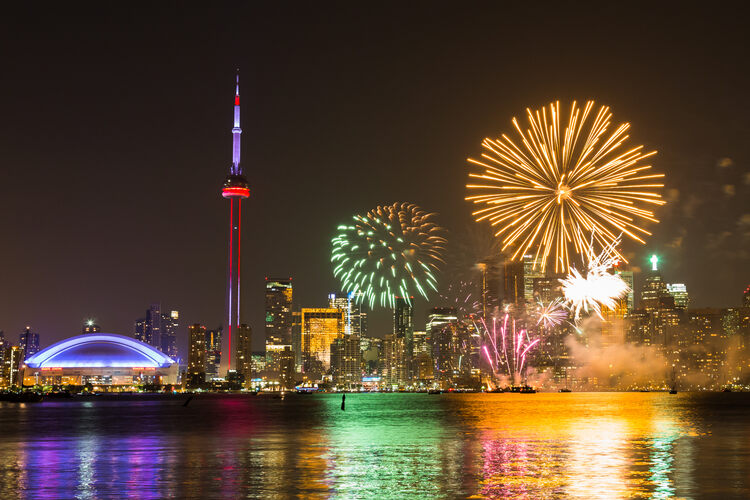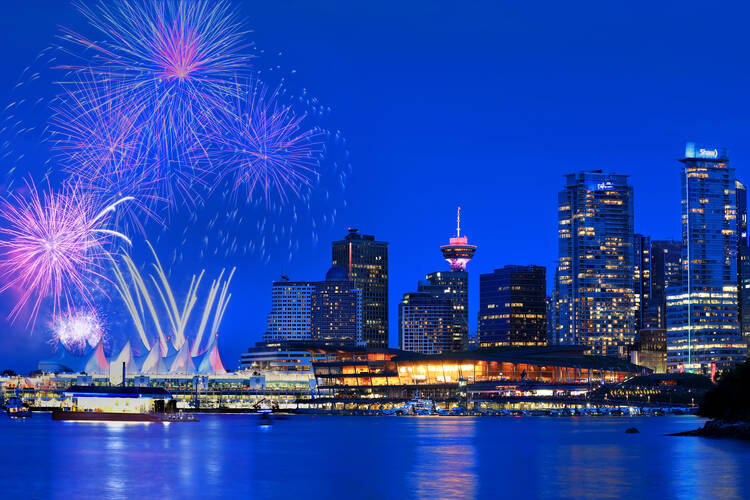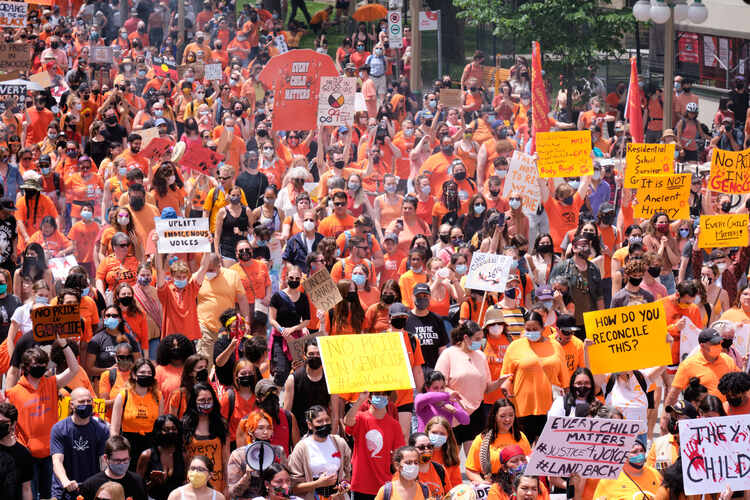
Fire bans & rising firework costs threaten Canada Day celebrations, amid urges to reconsider over environmental and cultural sensitivities
By
Canada Day – the country’s national holiday – is just around the corner, but several municipalities face restrictions on firework displays due to fire bans, rising costs and environmental concerns amid urges from certain communities to reconsider pyrotechnics entirely due to cultural sensitivities.
With concerns that this wildfire season is set to be Canada’s worst on record – already destroying an area twice the size of Switzerland – open fires have been banned in many areas, including several regions in Quebec.
Across Ontario, firework displays have been called off on the popular 1 July holiday – from the usual displays in main squares in Toronto to those in the cottage region, Muskoka, which has faced a municipal fire ban and provincial order since 30 May due to the surging number of wildfires across the country.

Related articles
But it isn’t only wildfires that are affecting fireworks this Canada Day. Rising costs, of over $200,000 for a 15-minute show, have led fireworks in Vancouver in British Columbia – where tens of thousands would usually gather to watch firework displays pre-pandemic – to be permanently cancelled.
The environmental concerns of firework shows have also led Banff to cancel its pyrotechnics display this year, citing concerns over previous shows ‘producing noise, bright flashes, smoke at crowd level and litter that had to be carefully recovered,’ according to its website.
Cultural sensitivities
The city of Calgary reverted its decision to cancel Canada Day fireworks, deciding to instead pilot a new ‘visually stunning display of lights and sounds’ – despite initially citing several reasons to call off the pyrotechnics. These included environmental concerns, cultural sensitivities around firework displays in relation to the Truth and Reconciliation, as well as 1 July marking the 100th anniversary of the Chinese Immigration Act, which banned Chinese immigration into Canada for almost 24 years.
Many people protested the decision to cancel Calgary’s fireworks, including an online petition to reinstate them which gained over 12,000 signatures.
Coun. Terry Wong, who represents Ward 7, says that Calgary’s Chinese community will observe the act’s centennial anniversary which caused lingering systemic barriers and pervasive biases.
‘We are observing both the trauma of the [Chinese] Immigration Act and also the rise of the Chinese community and the contributions they’ve made to Calgary over the last 100 years,’ Wong said.
‘With or without fireworks, we will do an observance.’

Tom, alongside activist group The Indigenous Foundation, endorses the idea that people should donate money to Indigenous organisations or residential school survivor funds, rather than buy fireworks for Canada Day.
‘I think there are different ways [if you want] to celebrate,’ said Chief Don Tom of the Tsartlip First Nation on Vancouver Island, adding that he hoped people would ‘educate themselves on Canada’s history with Indigenous people.’
Fireworks are still set to go ahead in many cities across Canada – in Nova Scotia, a fireworks show will appear for the first time since 2019, and other firework displays are scheduled in cities including Victoria, B.C; Edmonton, Alberta and Winnipeg, Manitoba.




